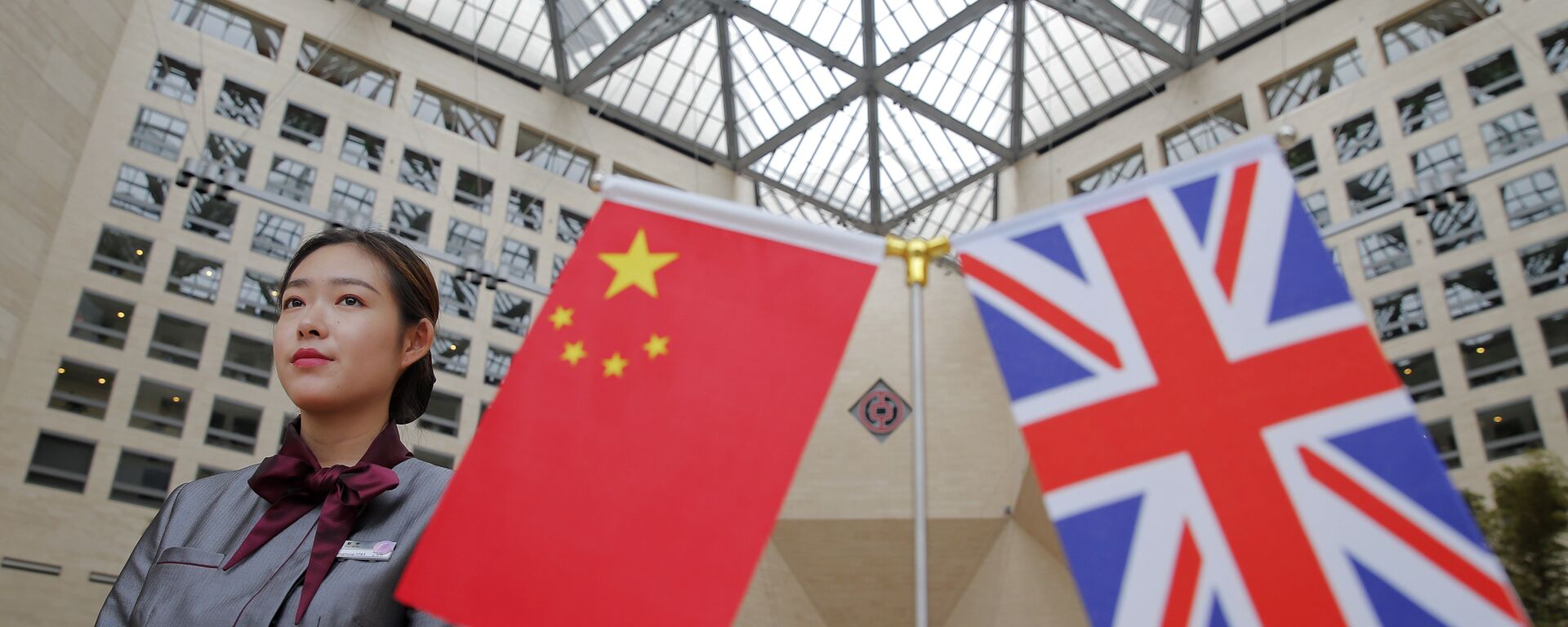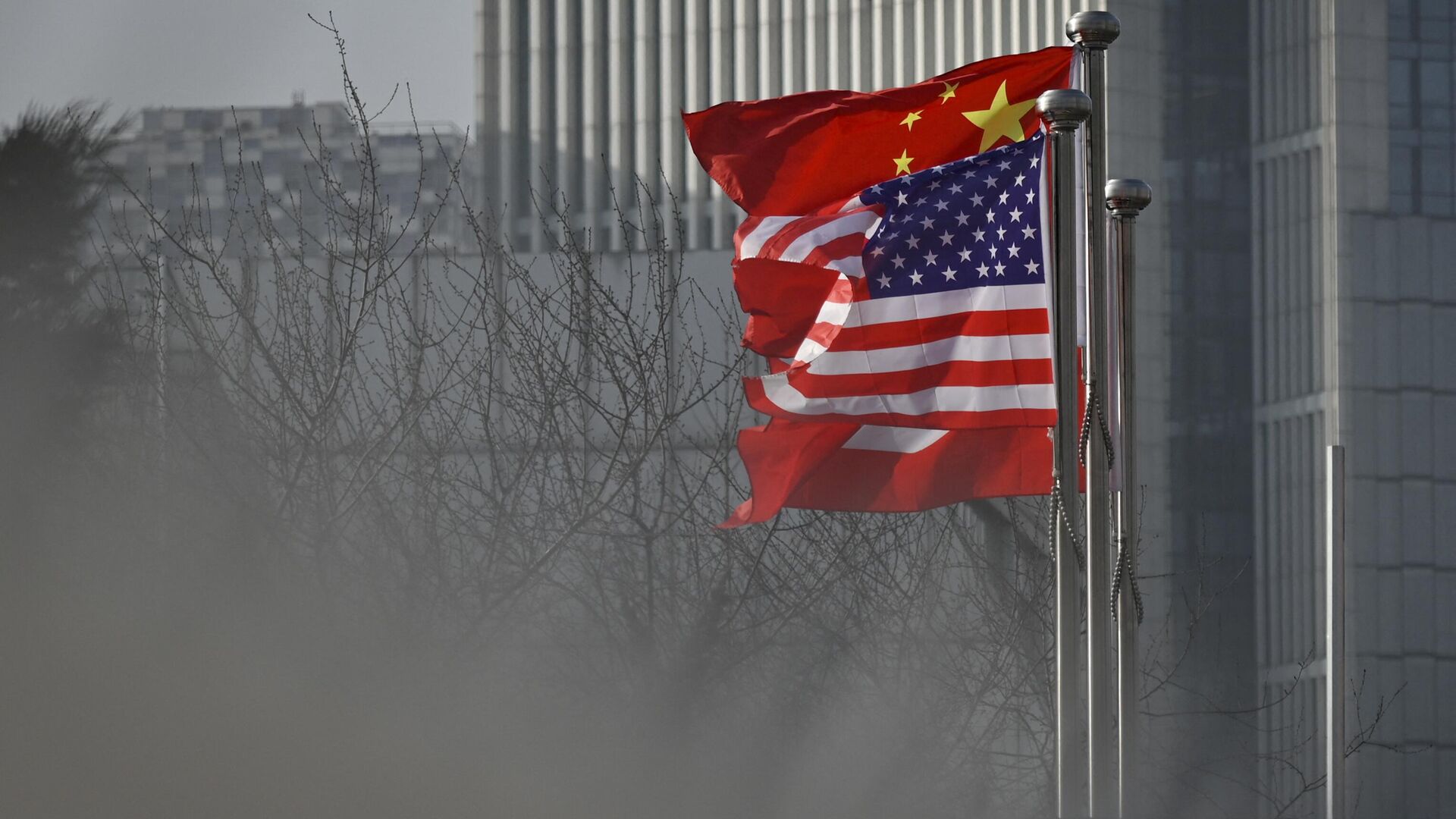https://sputnikglobe.com/20230305/whole-nation-strategy-beijing-calls-for-key-tech-breakthroughs-amid-china-us-chip-race-1108062075.html
‘Whole Nation Strategy’: Beijing Calls for ‘Key Tech Breakthroughs’ Amid China-US Chip Race
‘Whole Nation Strategy’: Beijing Calls for ‘Key Tech Breakthroughs’ Amid China-US Chip Race
Sputnik International
The booming global microchip industry is believed to prosper even further over the next seven years, probably growing to more than $1 trillion in revenues by 2030.
2023-03-05T13:17+0000
2023-03-05T13:17+0000
2023-03-05T13:17+0000
economy
us
china
economy
semiconductors
race
technologies
industry
goal
https://cdn1.img.sputnikglobe.com/img/07e7/03/05/1108061157_0:160:3055:1878_1920x0_80_0_0_a2ccebd94d71605d2bedf7ade88033ce.jpg
Chinese Premier Li Keqiang has pledged to effectively use state resources to secure key breakthroughs in such areas as semiconductors, amid the tech competition between Beijing and Washington.According to him, the goal is to get the better of Washington when it comes to basic scientific research and advanced technologies ranging from advanced intelligence to space.He also urged those with private capital in China to collaborate on major government initiatives and projects to grapple with the country’s economic "areas of weakness."According to the premier, having "effectively countered external attempts to suppress and contain China’s development" over the past five years, China should “pool quality resources and make concerted efforts” to achieve breakthroughs in key technology fields in the future.The remarks came a few weeks after Chinese President Xi Jinping called for boosting basic research in science and technology so as to outstrip the US in terms of becoming a global tech power.Xi also urged the government to provide more policy support for research efforts and strengthen the nation’s "strategic technology power."Beijing-Washington Chip Race This comes amid the ongoing race between the US and China to prevail in the prospering global chip industry, which is expected to grow to $1.4 trillion in revenues by 2030.According to the White House, at present the US produces roughly 10 percent of the world’s supply of chips, whereas China accounts for at least 15 percent of global production. Washington is striving to win the race with Beijing by imposing further restrictions and expanding investments in the domestic chip industry.In October, the Biden administration rolled out the most extensive restrictions to date on Beijing’s chip manufacturing industry, requiring licenses for those companies that export chips to China using US tools or software, no matter where they're made in the world. The measures also prevent US citizens and green card holders from working for certain Chinese chip companies.The restrictions were preceded by President Joe Biden signing into law a bipartisan CHIPS and Science Act which includes more than $52 billion for US companies producing semiconductors, as well as billions more in tax credits to encourage investment in the industry.The goal is to prevent American investors from directly or indirectly contributing to the development of semiconductor production in China. One of the conditions for obtaining a government subsidy under the new law is the obligation not to invest in the development of advanced technology in China for 10 years.China, for its part, is seeking to develop its own technologies, instead of following in the footsteps of Western manufacturers. When it comes to the semiconductor industry, Beijing expands the domestic technology to produce advanced silicon carbide chips.In this regard, Beijing is sparing no expense in the research and development (R&D) of similar technologies. Premier Li Keqiang has already promised that the country's R&D spending for the purpose would grow by more than 7 percent per year between 2021 and 2025.
https://sputnikglobe.com/20221117/analysts-uk-abandons-strategic-autonomy-by-joining-semiconductor-blockade-of-china-1104333854.html
china
Sputnik International
feedback@sputniknews.com
+74956456601
MIA „Rossiya Segodnya“
2023
Oleg Burunov
https://cdn1.img.sputnikglobe.com/img/07e4/09/0b/1080424846_0:0:2048:2048_100x100_80_0_0_3d7b461f8a98586fa3fe739930816aea.jpg
Oleg Burunov
https://cdn1.img.sputnikglobe.com/img/07e4/09/0b/1080424846_0:0:2048:2048_100x100_80_0_0_3d7b461f8a98586fa3fe739930816aea.jpg
News
en_EN
Sputnik International
feedback@sputniknews.com
+74956456601
MIA „Rossiya Segodnya“
Sputnik International
feedback@sputniknews.com
+74956456601
MIA „Rossiya Segodnya“
Oleg Burunov
https://cdn1.img.sputnikglobe.com/img/07e4/09/0b/1080424846_0:0:2048:2048_100x100_80_0_0_3d7b461f8a98586fa3fe739930816aea.jpg
us-china chip race, china's development of chip industry, us' tech restrictions on china
us-china chip race, china's development of chip industry, us' tech restrictions on china
‘Whole Nation Strategy’: Beijing Calls for ‘Key Tech Breakthroughs’ Amid China-US Chip Race
The booming global microchip industry is believed to prosper even further over the next seven years, probably growing to more than $1 trillion in revenues by 2030.
Chinese Premier Li Keqiang has pledged to effectively use state resources to secure key breakthroughs in
such areas as semiconductors, amid the tech competition between Beijing and Washington.
In his reports released at the beginning of the annual National People’s Congress on Sunday, Li Keqiang reiterated the government’s readiness to conduct a "whole nation strategy."
According to him, the goal is to get the better of Washington when it comes to basic scientific research and advanced technologies ranging from advanced intelligence to space.
"The new system for mobilizing resources nationwide should be improved. We should better leverage the role of the government in pooling resources to make key technological breakthroughs, and enterprises should be the principal actors in innovation," Li stressed.
He also urged those with private capital in China to collaborate on major government initiatives and projects to grapple with the country’s economic "areas of weakness."
According to the premier, having "effectively countered external attempts to suppress and contain China’s development" over the past five years, China should “pool quality resources and make concerted efforts” to achieve breakthroughs in key technology fields in the future.
The remarks came a few weeks after Chinese President Xi Jinping called for boosting basic research in science and technology so as to outstrip the US in terms of becoming a global tech power.
"To cope with international science and technology competition, achieve a high level of self-reliance and self-improvement […] we urgently need to […] solve key technology problems from the source," he stressed.
Xi also urged the government to provide more policy support for research efforts and strengthen the nation’s "strategic technology power."
Beijing-Washington Chip Race
This comes amid the ongoing race between the US and China to prevail in the prospering global chip industry, which is expected to grow to $1.4 trillion in revenues by 2030.
According to
the White House, at present the US produces roughly
10 percent of the world’s supply of chips, whereas China accounts for at least
15 percent of global production. Washington is striving to win the race with Beijing by imposing further restrictions and expanding investments in the domestic chip industry.
In October, the Biden administration rolled out the most extensive restrictions to date on Beijing’s chip manufacturing industry, requiring licenses for those companies that export chips to China using US tools or software, no matter where they're made in the world. The measures also prevent US citizens and green card holders from working for certain Chinese chip companies.
The restrictions were preceded by President Joe Biden signing into law a bipartisan CHIPS and Science Act which includes more than $52 billion for US companies producing semiconductors, as well as billions more in tax credits to encourage investment in the industry.

17 November 2022, 16:21 GMT
The goal is to prevent American investors from directly or indirectly contributing to the development of semiconductor production in China. One of the conditions for obtaining a government subsidy under the new law is the obligation not to invest in the development of advanced technology in China for 10 years.
China, for its part, is seeking to develop its own technologies, instead of following in the footsteps of Western manufacturers. When it comes to the semiconductor industry, Beijing expands the domestic technology to produce advanced silicon carbide chips.
In this regard, Beijing is sparing no expense in the research and development (R&D) of similar technologies. Premier Li Keqiang has already promised that the country's R&D spending for the purpose would grow by more than 7 percent per year between 2021 and 2025.




